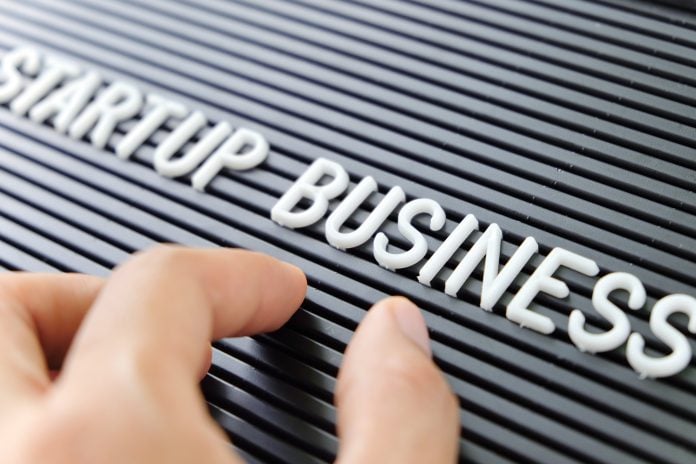Key Takeaways

- Timeline Variability: The time it takes to start a business can vary significantly depending on factors such as industry, business model, and individual readiness.
- Business Model Impact: Service-based businesses typically launch within 1 to 3 months, while product-based businesses can take 6 to 18 months due to additional steps like manufacturing and supply chain management.
- Regulatory Compliance: Different industries have unique regulatory requirements, which can extend the start-up timeline; understanding these is critical to avoid delays.
- Funding Delays: Securing funding, whether through loans or investors, can introduce potential delays in your business launch, so plan accordingly.
- Market Research Importance: Conducting thorough market research is essential and can take 6 to 12 weeks, informing your business plan and strategies for success.
- Real-World Lessons: Case studies highlight the need for thorough planning and understanding market dynamics to prevent common pitfalls during the initial phases of your business journey.
Starting a business is an exciting journey filled with potential and challenges. But one question often lingers in the minds of aspiring entrepreneurs: how long does it really take to get things off the ground? The timeline can vary widely based on several factors including your industry, business model, and personal readiness.
Whether you’re launching a tech startup or a local coffee shop, understanding the time commitment involved is crucial. From planning and funding to legal requirements and marketing, each step plays a vital role in your overall timeline. Let’s dive into the key phases of starting a business and what you can expect along the way.
Understanding Business Start-Up Timelines

Understanding the timeline for starting a small business is essential for effective planning. Several factors can impact how soon you can get your startup off the ground.
Factors That Influence Start-Up Time
- Business Model: Your choice of business model significantly affects the timeline. For instance, a service-based startup can often launch more quickly than a product-based business, which requires manufacturing and supply chain development.
- Industry Regulations: Different industries have unique regulatory requirements. Compliance for food services or healthcare typically takes longer due to permits and inspections.
- Funding Sources: Securing funding influences your start-up time. If you rely on loans or investors, be prepared for potential delays during the application and approval processes.
- Market Research: Conducting thorough market research may extend your timeline. It’s crucial to understand your target audience and competition before moving forward.
- Team Development: Assembling a skilled team can take time. If your startup relies on specialized knowledge, such as technology or finance, recruit early to ensure a smoother launch.
Types of Businesses and Their Timelines
| Business Type | Estimated Start-Up Time |
|---|---|
| Service-Based | 1 to 3 months |
| E-commerce | 2 to 6 months |
| Franchise | 3 to 12 months |
| Manufacturing | 6 to 18 months |
| Retail | 3 to 9 months |
Different types of startups demand varying timelines. For example, a service-based small business, such as consulting, often launches within one to three months. In contrast, an e-commerce business that requires website development might take two to six months. Understanding these timelines helps you plan effectively for your new enterprise.
Steps to Starting a Business

Understanding the process of launching a small business involves several steps. Each step has its own timeline and crucial requirements.
Business Idea Development
Developing your business idea is essential. Start with idea generation techniques like brainstorming or First Principles. The duration of this phase varies. Complex ideas require more time for thorough analysis and refinement. Focus on evaluating your concept for feasibility, market demand, and potential competition.
Market Research and Planning
Conducting market research is crucial for your startup’s success. Gather information about your target customers, industry trends, and competitors. A typical market research project takes about 6-12 weeks, depending on the methods used, such as surveys or focus groups. This data helps you create a solid business plan that outlines your goals, strategies, and financial projections.
Legal Requirements and Registration
Meeting legal requirements is essential when starting a small business. Register your business structure, such as a sole proprietorship or LLC, and obtain necessary licenses and permits. The time for legal registration can range from a few days to several weeks, influenced by your business type and state regulations. Ensure compliance to avoid future pitfalls.
Realistic Time Frames

Understanding the time frames for launching a small business helps set realistic expectations. Different types of businesses inherently come with their own timelines for setup and launch.
Service-Based Businesses
Service-based businesses can typically launch within 3 to 5 months. This swift timeline applies to ventures like consulting, software services, and home service providers. Initial setup, including business registration and necessary licensing, often occurs within weeks or even days. You can register your small business online in less than 24 hours and obtain an Employer Identification Number (EIN) immediately during business hours. These quick steps help you to start providing services to your first customers faster.
Product-Based Businesses
Product-based businesses often require more time due to production and inventory setup. Expect timelines of 6 to 18 months before launching products into the market. Developing a product involves several phases such as design, prototyping, and manufacturing. Additionally, you need to account for supply chain logistics and quality assurance processes, which can significantly extend the timeline. If you’re looking to start a small business in this sector, thorough planning and efficient execution are vital to meet your launch goals.
Case Studies

Understanding real-world examples can illuminate the timeline for starting a small business. Analyzing successful startups and the lessons learned from failures provides invaluable insights into the process.
Successful Start-Up Examples
Service Businesses: A small marketing agency in your area launched in four months. The founders focused on building a strong online presence and networking within local businesses. By using social media and offering free workshops, they secured their first clients quickly, demonstrating the effectiveness of strategic marketing in a short timeframe.
Online Companies: Consider an e-commerce business that took just 30 days to start. Utilizing an existing marketplace platform, the founder created an appealing storefront, optimized product listings, and promoted their store through targeted ads. Rapid demand led to a successful launch, emphasizing that online models can streamline the process significantly.
Lessons Learned from Failures
Retail Stores: A local retail shop opened its doors after a year of planning but faced early closure due to miscalculating inventory needs. Underestimating local competition and market demand contributed to its struggles. This highlights the importance of thorough market research before launching a business.
Food Trucks: An aspiring food truck owner took 18 months to realize their vision but experienced challenges due to insufficient permits and regulations. Learning from this case, you must prioritize understanding local regulations and securing necessary licenses to avoid costly delays.
By exploring these case studies, you gain valuable perspectives on how to start a small business successfully while acknowledging potential pitfalls along the way.
Conclusion

Starting a business is an exciting journey filled with unique challenges and opportunities. Understanding the time it takes to launch your venture is crucial for effective planning. Each step from idea development to legal registration requires careful consideration and can vary significantly based on your specific circumstances.
By grasping the timelines associated with different business types and the factors influencing them, you can set realistic expectations for your startup. Remember that patience and persistence are key. Equip yourself with knowledge and insights to navigate this process successfully, and you’ll be well on your way to turning your entrepreneurial dreams into reality.
Frequently Asked Questions

What is the typical timeline for starting a business?
Starting a business can vary widely in timeline depending on the industry and business model. Generally, service-based businesses can launch within 1 to 3 months, while manufacturing ventures may take 6 to 18 months due to complexities involved.
What factors influence the startup timeline?
Several factors influence startup timelines, including the chosen business model, industry regulations, access to funding, thorough market research, and team development. Each of these plays a crucial role in determining how quickly a business can be operational.
How long does market research typically take?
Market research typically takes between 6 to 12 weeks. This phase is vital for understanding target customers, assessing market demand, and identifying competition, helping to inform your business strategy.
What are the essential steps to starting a business?
Key steps to starting a business include developing your business idea, conducting market research, fulfilling legal requirements, and planning marketing strategies. Each step has its own timeline and requirements to consider.
Why is understanding the startup process important?
Understanding the startup process is crucial for setting realistic expectations and timelines. It helps aspiring entrepreneurs navigate the complexities of launching a business and prepares them for potential challenges along the way.
Can you provide an example of a successful startup timeline?
Yes! A local marketing agency was able to launch successfully in four months through effective marketing and networking. Their experience highlights the importance of strategic planning in achieving fast results.
What challenges might affect a startup’s timeline?
Challenges such as regulatory issues, poor inventory management, and inadequate market research can delay a startup’s timeline. Learning from both successes and failures can help you avoid these pitfalls.
How can I better prepare for starting my business?
To prepare, focus on understanding your market, developing a solid business plan, and networking with other entrepreneurs. Thorough preparation can help you streamline your efforts and navigate the startup process more efficiently.
Image Via Envato



